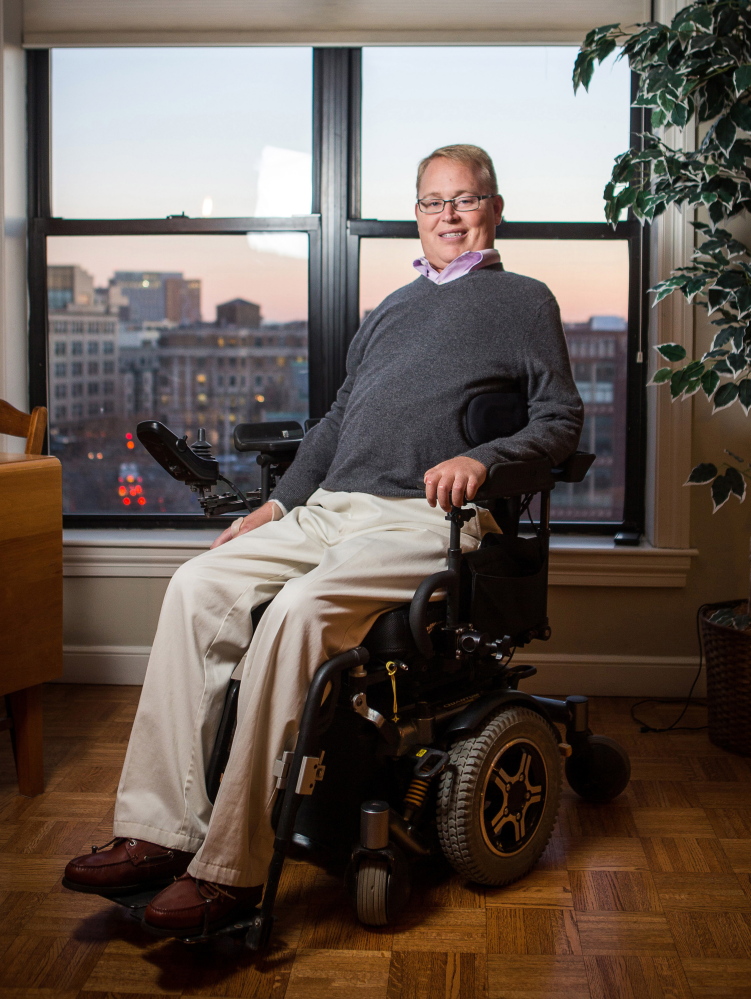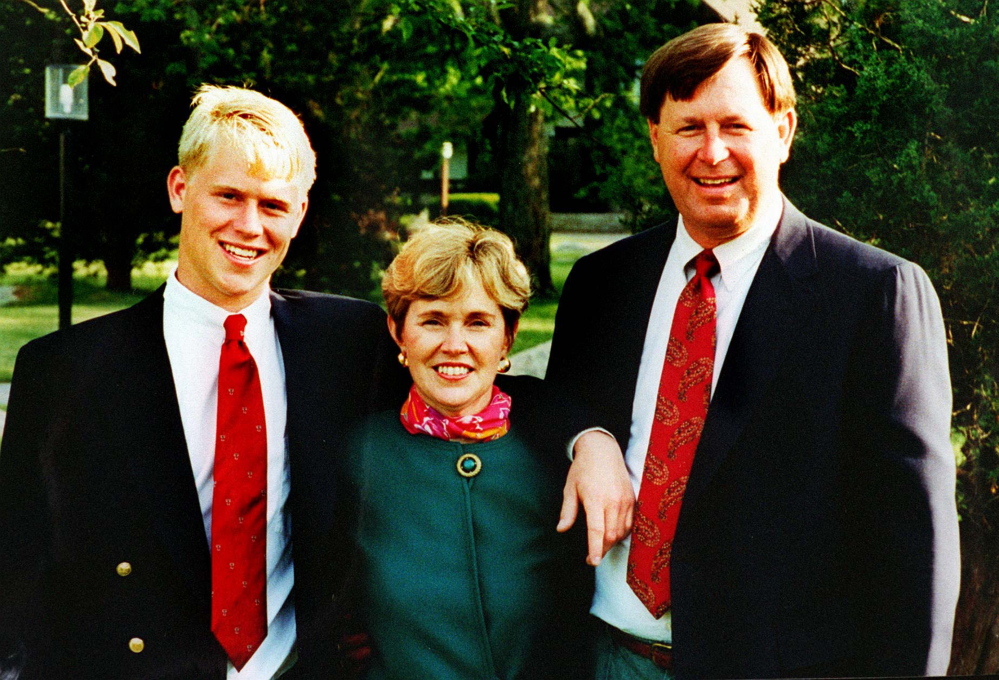When it’s his turn to speak Thursday night, Travis Roy won’t fumble the moment searching for the right words. He’ll talk from his heart, as he’s done so simply and eloquently over the past 19 years.
Living with paralysis wasn’t the challenge he sought when he fell head-first into the rink boards only 11 seconds into his first collegiate hockey game in 1995. It became the challenge he’s fought to overcome for himself and so many others with spinal cord injuries. Which is one reason Roy will be presented Thursday with the Christopher Reeve Foundation’s prestigious Spirit of Courage Award at its annual gala in New York City.
The boy from Yarmouth, who dreamed of one day winning an NCAA hockey championship with his Boston University teammates or hoisting the NHL’s Stanley Cup, is now a man being honored for his humanitarian work. For Roy and his family and closest friends, it will be a bittersweet moment.
“For a long time, almost 10 years, I never felt comfortable with the attention my story received,” said Roy, 39. “Basically, all I did was break my neck.”
He has just enough movement in his right bicep to push the joystick on his wheelchair to navigate the city streets of Boston, where he lives, or the camp roads on the shore of Lake Champlain in Vermont, where he spends time with family. Otherwise, Roy cannot move a muscle from the neck down. He has not let his paralysis define who he is. When he earned his degree from BU, he realized he did accomplish something.
He got actively involved in his Travis Roy Foundation. He didn’t give it just his name. The foundation has his face and his spirit.
“The first seven, eight years, the impact was very small,” Roy said. “The last eight, 10 years we’ve changed the lives of 1,000 people. We’re funding research. I realize (the Spirit of Courage Award) is important. It means a lot to me because I share it with so many others. I’m just the lead singer of this band.”
Ten years after Reeve died from the lingering effects of the paralysis caused by his spill from a horse, the foundation that is named for him and his late wife, Dana, sought someone special to recognize. Roy was chosen. His work with the foundation couldn’t be ignored any longer.
Roy doesn’t have the star power of the actor who played Superman in movies, but his positive energy wins over those who come into contact with him.
Roy’s annual Wiffle ball tournament in Essex, Vermont, a fundraiser for his foundation, has raised $2,910,000 in 13 years. Players from the 28 teams who compete do the fundraising. Winning the tournament is important, to a point. The biggest cheer goes up when the pledged money is counted.
“Every year I try to get through it without emotionally breaking down,” said Tony McNaboe, a longtime friend who brings a team of Mainers to the tournament. “Essex, for the three days of the tournament, is a little bit of utopia. It blows my mind what he’s turned that tournament into. It’s such a profoundly poignant time and it’s all because of Travis. He’s so selflessly concerned with you.”
Art Page, an attorney in Boston, met the Roy family through mutual friend Brian Burke. Now an NHL general manager, Burke played for the Maine Mariners when Travis Roy was the stick boy and his father, Lee, was head of security at the Cumberland County Civic Center. Page’s Wiffle ball team, Boston Beef, has played all 13 years in the tournament. Frequently they are the biggest fundraisers.
“I’ve got 11 guys who started with me,” Page said. “They were 16, 17, 18 years old. Now they’re in their late 20s and early 30s. They fundraise year-round. They circle the days on the calendar for the tournament.
“I’ve never been able to find words to paint this picture. Travis is the one asking you how you’re doing.”
Dave Barger, the outgoing CEO of JetBlue Airways, will introduce Roy at “A Magical Evening,” which is what the Reeve foundation’s dinner is called. Barger and Roy met almost by chance when a Jet Blue pilot living in Burlington, Vermont, urged his company to get involved in the tournament.
“Like many, I learned of Travis’ injury via the news,” said Barger. “I was really shaken by the story. I’m a lifelong hockey fan and it just didn’t seem fair that a college hockey player would suffer such an injury 11 seconds into his hockey career.”
Barger came to Vermont, met Travis and his parents, Brenda and Lee, and was impressed by their hope and determination. Their gentle, self-effacing humor had an impact, too.
Barger believes he knows how Roy will respond to the recognition. “He’ll shed a tear or two, as will others. He’ll thank many for their ongoing support, and commit to further the education and research necessary.
“Most importantly, he’ll be the same guy after receiving the award as he was before receiving the award.”
Send questions/comments to the editors.





Comments are no longer available on this story